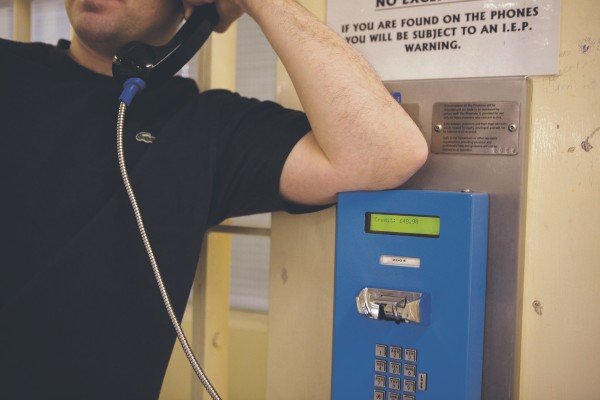A Deep Dive into the Intricacies of Prison Call Systems and Their Impact on Inmate Connection with the Outside World
One of the key aspects of maintaining a connection with incarcerated loved ones is communication. In today’s fast-paced world, a phone call can make a significant difference in the lives of both inmates and their families. But, how do prison inmate calls work? This comprehensive guide will help you understand the intricacies of inmate communication systems, the rules governing these calls, and the costs involved.
Prison inmate calls serve as a lifeline for inmates to stay connected with their family, friends, and legal representatives. These calls are typically facilitated through a contracted third-party service provider who installs and manages the telephone systems in prisons. Generally, inmates are not allowed to receive incoming calls, but they can make outgoing calls during designated hours.
Inmates access the phone system using their personal identification number (PIN) assigned by the correctional facility. The calls are subject to time restrictions and may be limited to a certain number of minutes per day or week. The availability of phone services also depends on the security level and the inmate’s behavior within the facility.
Security Measures and Monitoring
Security is a top priority in correctional facilities. Inmate calls are carefully monitored and recorded to ensure the safety and security of both the inmate and the public. Phone conversations may be terminated if deemed inappropriate or if they violate the established rules. Some of the security measures in place include:
- Call recording: Most inmate calls are recorded and archived for future reference.
- Call monitoring: Live monitoring may occur randomly or based on suspicion.
- Restricted call list: Inmates are only allowed to call pre-approved numbers.
- Blocked calls: Certain types of calls, such as three-way calls, are prohibited.
Types of Inmate Calls
There are three primary types of inmate calls:
- Collect Calls: The recipient of the call is charged for the call. The recipient must have an account with the third-party service provider to accept collect calls from inmates.
- Prepaid Calls: Inmates or their families can fund a prepaid account, which allows inmates to make calls without charging the recipient.
- Debit Calls: Inmates can purchase phone credits from the prison commissary, which is deducted from their account when they make calls.
Costs Associated with Inmate Calls
Inmate calls can be expensive, with rates varying depending on the correctional facility and the service provider. The Federal Communications Commission (FCC) has established rate caps for interstate inmate calls, but intrastate call rates may still be higher. Costs may include:
- Per-minute charges
- Connection fees
- Service charges for adding funds to prepaid accounts
To help reduce the financial burden on families, some organizations and advocates are working towards lowering the cost of inmate calls and making communication more accessible.
Tips for Managing Inmate Calls
- Set up a budget: Establish a monthly budget for inmate calls to avoid overspending.
- Prioritise communication: Prioritise essential communication, such as legal matters and family updates.
- Use alternative methods: Explore other communication methods, such as letters or email, if available.
- Monitor your account: Regularly review your account and call history to ensure there are no discrepancies.
Frequently Asked Questions
- How can I set up an account to receive inmate calls? Contact the third-party service provider associated with the correctional facility. They will guide you through the account setup process and provide information on payment options.
- Can I block inmate calls? Yes, you can request to have your number blocked by contacting the correctional facility or the third-party service provider. Keep in mind, however, that blocking calls may prevent essential communication from the inmate.
- Can inmates leave voicemails? Some facilities may have a voicemail system in place for inmates, while others may not. Contact the facility or the service provider to determine if voicemail services are available.
Understanding how prison inmate calls work is crucial for maintaining a connection with incarcerated loved ones. Though the process may seem complex and costly, it is an essential lifeline for inmates to stay in touch with family, friends, and legal representatives. By familiarizing yourself with the different types of calls, the associated costs, and the rules governing these calls, you can better navigate the world of inmate communication and support your loved one during their time in prison.







